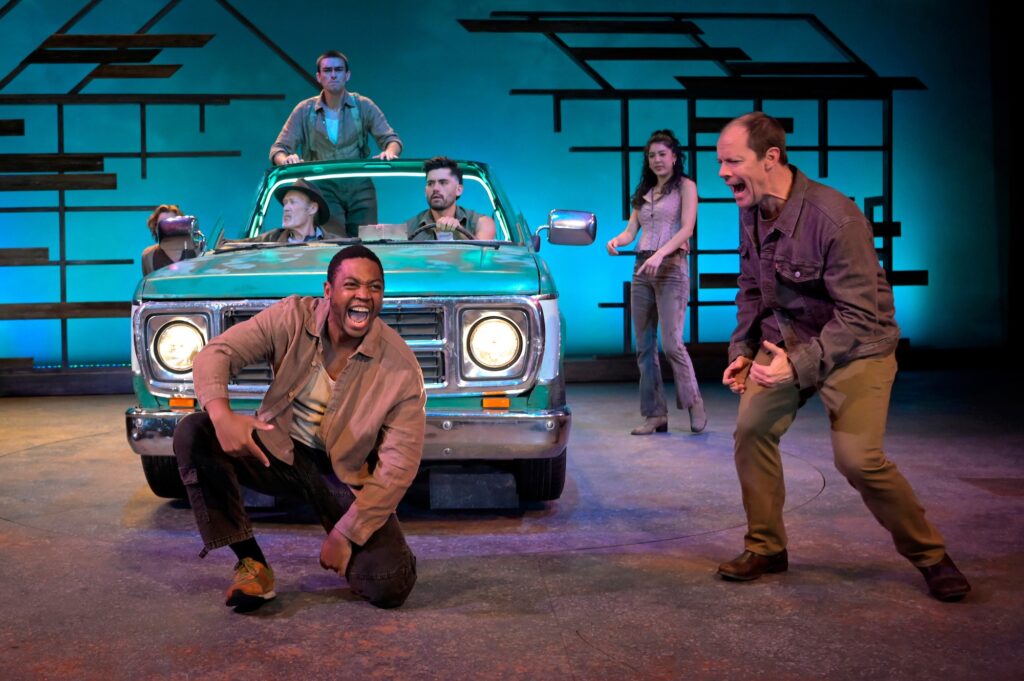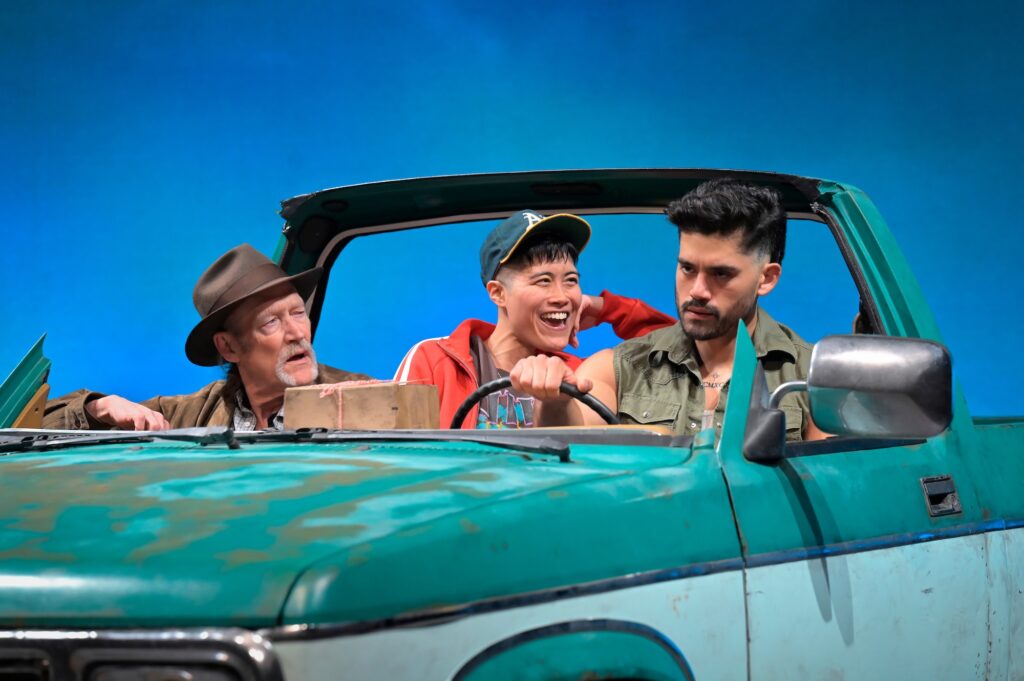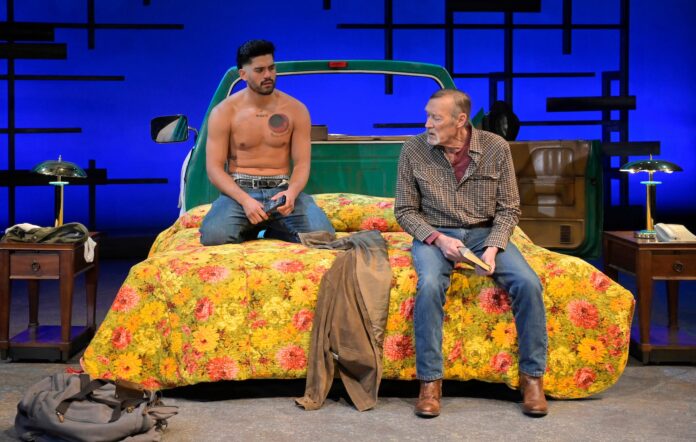Sure, there’s scientific curiosity behind humanity’s fixation on nature vs. nurture, but that may not be the only reason. From a non-academic perspective, nature vs. nurture is essentially humanity’s way of asking “Who’s to blame for how these damn kids turn out?” We as a species—Americans, in particular—revel in an unearned sense of superiority, so the parents of a world-class athlete have bragging rights over the parents of a cold-blooded killer. (Unless the kid is OJ Simpson, who was both.)
Of course, the simple truth is, well, it’s not that simple. Nature and nurture are just two ingredients in recipe that includes specialized training, interpersonal relationships, technological advances and limitations of the era, and, oh yeah, inequality. Those of us who grew up with The Bell Curve saying that Black people were inherently inferior to whites had truth on our side, but we didn’t have the major publishing push of that bullshit tome. We people of color have yet to shake the harmful labels that have been put on us for centuries, which is more than nature or nurture alone.
That dichotomy forms the road trip narrative at the heart of Octavio Solis’ Mother Road (through July 21 at the Berkeley Rep). Gruff and gristled Oklahoma farmer Will Joad (Bay Area luminary James Carpenter) believes in the importance of having something of your own, that’s why even he’s never sold the 2,000-acre family farm, despite very lucrative offers from developers. But Will knows that he won’t live forever, so he heads to California to meet with whom he’s told is his last surviving kin, the one who will inherit the farm.
To Will’s utter shock, the relative is the half-Mexican Martín Jodes (Emilio Garcia-Sanchez), a career day-laborer. Needless to say, the good ol’ boy isn’t immediately taken by the newly discovered Chicano heir to his family’s land, but he can’t argue with official records. As such, the two head out in Martín’s beater truck “Cesar” to go see this wide stretch of land. The way Will tells it, it’s crucial that they get there no later than Monday.

So, it doesn’t help Will’s disposition when Martín stops to pick up his butch-lez BFF Mo (Lindsay Rico), nor does it help that Martín is clearly keeping a few secrets of his own. One of those secret directly relates to why he left his beloved fiancée, Amelia (Cher Álvarez), at the altar. Nevertheless, Mother Road calls to our trio.
As I look at my notes, I see that a lot of them relate to Solis’ play being “old-fashioned.” First off, there’s the Steinbeck-evoking aesthetics of Tanya Orellana set design (The Grapes of Wrath is mentioned by name in official materials). The wooden shack “exoskeleton,” the ancient gas pump, and even the been-there-forever diner at which they stop all feel like post-Dust Bowl expansion relics plopped into the 21st century (there’s a narrative reason for that). If it weren’t for the fact that Mo is a smartphone-sporting Gen-Zer, one might think at times the characters are inhabiting the end of the film Giant.
There’s also the fact that the narrative is old-fashioned in its use of two opposites bonding on the open road. It’s a template used in everything from The Defiant Ones to Planes Trains & Automobiles. It’s great when it’s done right, as the hardest part will be getting the two together in a way that doesn’t feel convoluted. It’s to Solis’ credit that not only is the play set in the modern day (despite a lack of COVID), but that he specifically confronts the racial discomfort of the duo. This isn’t just in how they antagonistically interact with one another, but also in how the cops and strangers treat them: Will can talk his way out of a situation; Mo and Martín wonder if this is when and where they get shot for simply looking “illegal.”
Solis mostly succeeds in finding ways for the group to bond (the Amelia situation is just one way neither man has properly concluded a relationship), as well as distinguish themselves personality-wise—my two favorite jokes were about Martín refusing to fly because that’s how Ritchie Valens died, and Mo refusing a motel room because it’s the same number as the one in which Selena died. But he comes off a bit too heavy-handed at times.

One appreciates the way he doesn’t want to reduce Martín to stereotypes, but Solis almost makes him near-angelic: he met Mo after he took her in when her parents kicked her out for being queer; he has plans for the farm that seem noble; and I won’t spoil it here, but his reason for not showing to marry Amelia (who’s also pretty saint-like) was due to an act of heroism. If you’re familiar with Solis’ work, you know he’s no stranger to complex characters or dour story turns, but here it feels as if he’s trying a bit too hard for one ideal character and a happy(-ish) ending.
Nevertheless, director David Mendizábal has a fine ensemble at their disposal. The director and their collaborators not only have a handle on Solis’ inevitable poetic passages, but they seem determined to match them visually. From simple adjustments (the truck turning into a bed, diner table, and more) to more overt flourishes—like sound designer Jake Rodriguez’s cacophony and the Rodrigo Muñoz-designed wedding dress at the end of the first act—the artisanship and most of the performances match the prose. Though it stumbles with a slightly convoluted ending, it’s never dull to look at.
As usual, the Rep (in this case, the Peet’s Theatre) had a top-notch HVAC at work when only about 20% of us were masked. (I think that’s an increase from last time?) The CO² readings on my Aranet4 peaked around 1098ppm during the second act before dropping down to the 900s and ending at 1029ppm during the final bow.
The finale to Berkeley Rep’s 2023/24 season (minus the brief The Best of Second City short run in July) is a show on the cusp of greatness, if it would just embrace its flaws a bit more. It’s great to look at and performed by a fine cast (shout out the Bay Area’s own Cynthia Walsh for another fine turn as the diner-owner), yet the author is so determined to steer it—or nurture it, if you will—towards a happy conclusion that it doesn’t seem to get there naturally. It’s not really a blemish on his strong body of work, just not quite at the standard he set for himself long ago.
MOTHER ROAD runs through July 21 at the Berkeley Rep. Tickets and further info here.







